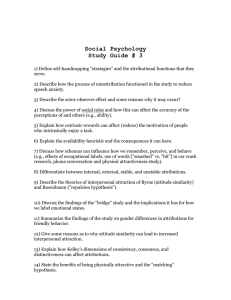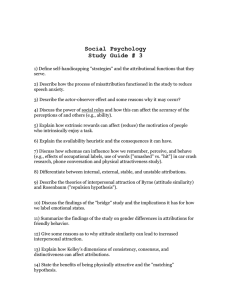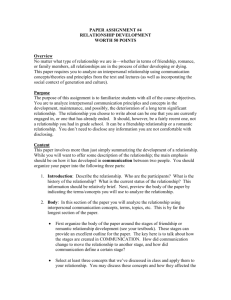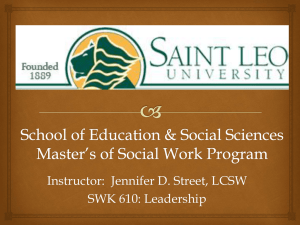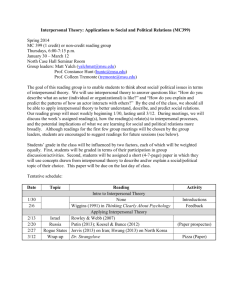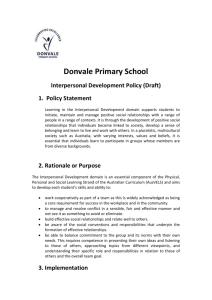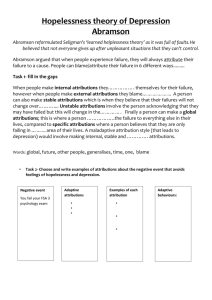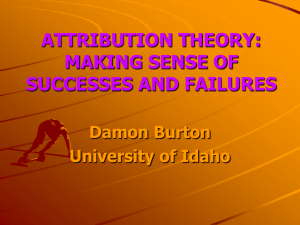Theories of Actions
advertisement
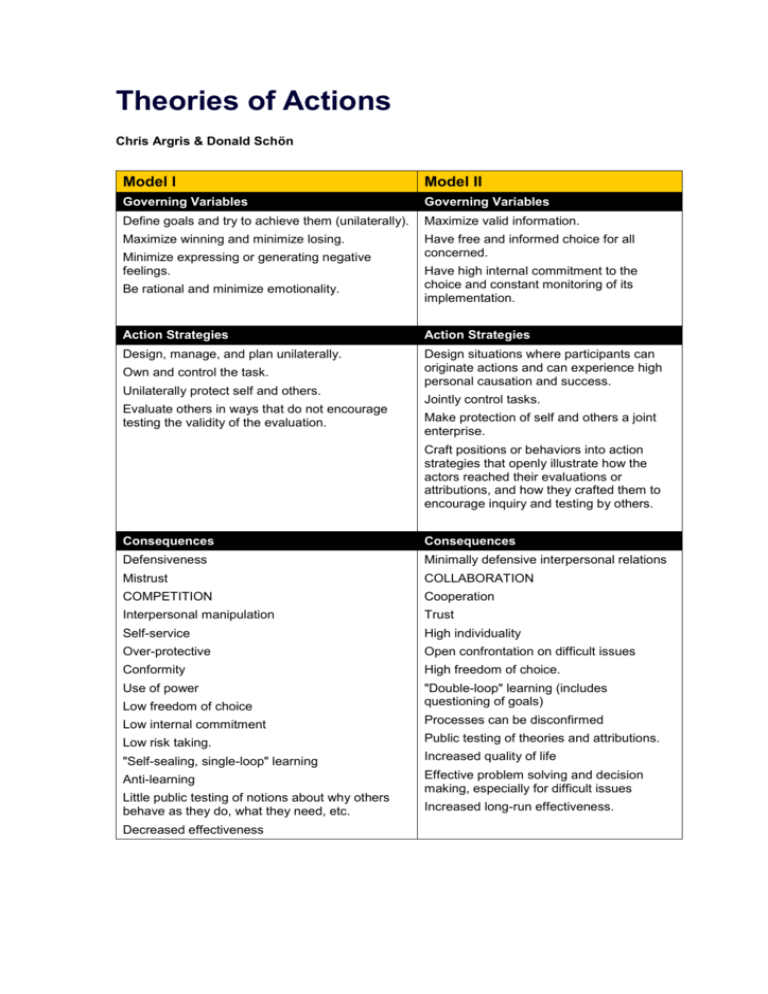
Theories of Actions Chris Argris & Donald Schön Model I Model II Governing Variables Governing Variables Define goals and try to achieve them (unilaterally). Maximize valid information. Maximize winning and minimize losing. Have free and informed choice for all concerned. Minimize expressing or generating negative feelings. Be rational and minimize emotionality. Have high internal commitment to the choice and constant monitoring of its implementation. Action Strategies Action Strategies Design, manage, and plan unilaterally. Design situations where participants can originate actions and can experience high personal causation and success. Own and control the task. Unilaterally protect self and others. Evaluate others in ways that do not encourage testing the validity of the evaluation. Jointly control tasks. Make protection of self and others a joint enterprise. Craft positions or behaviors into action strategies that openly illustrate how the actors reached their evaluations or attributions, and how they crafted them to encourage inquiry and testing by others. Consequences Consequences Defensiveness Minimally defensive interpersonal relations Mistrust COLLABORATION COMPETITION Cooperation Interpersonal manipulation Trust Self-service High individuality Over-protective Open confrontation on difficult issues Conformity High freedom of choice. Use of power Low freedom of choice "Double-loop" learning (includes questioning of goals) Low internal commitment Processes can be disconfirmed Low risk taking. Public testing of theories and attributions. "Self-sealing, single-loop" learning Increased quality of life Anti-learning Effective problem solving and decision making, especially for difficult issues Little public testing of notions about why others behave as they do, what they need, etc. Decreased effectiveness Increased long-run effectiveness.
